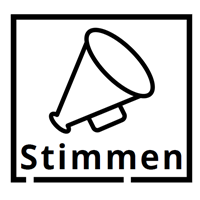Nieuwe spraakapp herkent afkomst Friese gebruiker
RUG slaat ‘boppeslach’ met Citizen Science
De Rijksuniversiteit Groningen (RUG) en Lân fan Taal hebben vandaag, samen met Omrop Fryslân, een app gelanceerd die kan bepalen waar de (Friese) gebruiker vandaan komt. Aan de hand van spraakopdrachten analyseert de app of de uitspraak past bij Klaaifrysk, Stadsfries, Stellingwerfs of een van de andere varianten die de Friese taal rijk is. De app is ontwikkeld door taalwetenschappers van het team Stimmen fan Fryslân van de RUG, en levert een schat aan taalkundige gegevens op die Friese spraakbesturing een stapje dichterbij brengt. Stimmen fan Fryslân is hiermee echte Citizen Science: met behulp van smartphone, tablet of de Stimmen website kan iedereen een waardevolle bijdrage leveren. De app is vanaf nu gratis te downloaden in iTunes en Google Play.
In heel Fryslân wordt Fries gesproken, maar bijna nergens spreekt men hetzelfde Fries, vertelt taalwetenschapster Nanna Haug Hilton. “Het woord ‘koken’ komt in het Friese taalgebied voor als ‘siede’, ‘siere’ of ‘kokje’. En ook voor ‘zaterdag’ zijn verschillende varianten: ‘sneon’, ‘saterdei’ en ‘saterje’. Deze voorbeelden verraden welke variant van het Fries iemand spreekt. De app herkent kleine verschillen en laat je direct weten of je uitspraak kenmerkend is voor een regio.“
Leerlingen van het Dockingacollege in Dokkum mochten op woensdagochtend 20 september de app als eerste uitproberen. Met een lesprogramma over meertaligheid bezoeken Hilton en haar collega’s het komende schooljaar alle middelbare scholen in Fryslân om zoveel mogelijk spraakgegevens te verzamelen en les te geven over taalonderzoek en meertaligheid. Ook Omrop Fryslân doet mee; de omroep besteedt deze hele week volop aandacht aan de app en het taalonderzoek.
De spraakapp is een van de manieren waarop Hilton de Friezen wil betrekken bij haar onderzoek. “Uiteindelijk is het de bedoeling om met de app zoveel mogelijk gegevens te verzamelen over de Friese taal en de verspreiding ervan en daar onderzoek naar te doen. Daarnaast kunnen we de data in de toekomst gebruiken om apps voor spraakherkenning, zoals Siri, te ontwikkelen voor de talen en dialecten die in Noord-Nederland gesproken worden. Echt iedereen kan meedoen aan het onderzoek. De uitkomsten zijn in de loop van 2018 – het jaar van Leeuwarden Culturele Hoofdstad - onder meer te zien bij het Lân fan Taal op het Oldehoveplein in Leeuwarden.”

Niet alleen Fries
Fryslân is een ideale proeftuin voor taalwetenschappers. Het is de meest talige provincie van Nederland, met een enorme diversiteit aan gesproken talen en dialecten. Hoewel de accentherkenning nu alleen voor het Fries werkt, benadrukt Hilton dat de app zeker niet alleen voor Friezen of de Friese taal bedoeld is: “Mensen kunnen in elke taal inspreken: Nedersaksische dialecten, mengdialecten of migrantentalen. Hierdoor creëren we een hele rijke bron van gegevens over taalgebruik, waar mijn collega taalwetenschappers van het RUG Research Centre Arts in Society en ik onderzoek op kunnen uitvoeren.”
Meer nieuws
-
14 februari 2026
Tumor weg, maar waar zijn de woorden?
-
19 januari 2026
Digitalisering drijft kansarme burgers soms in het nauw
